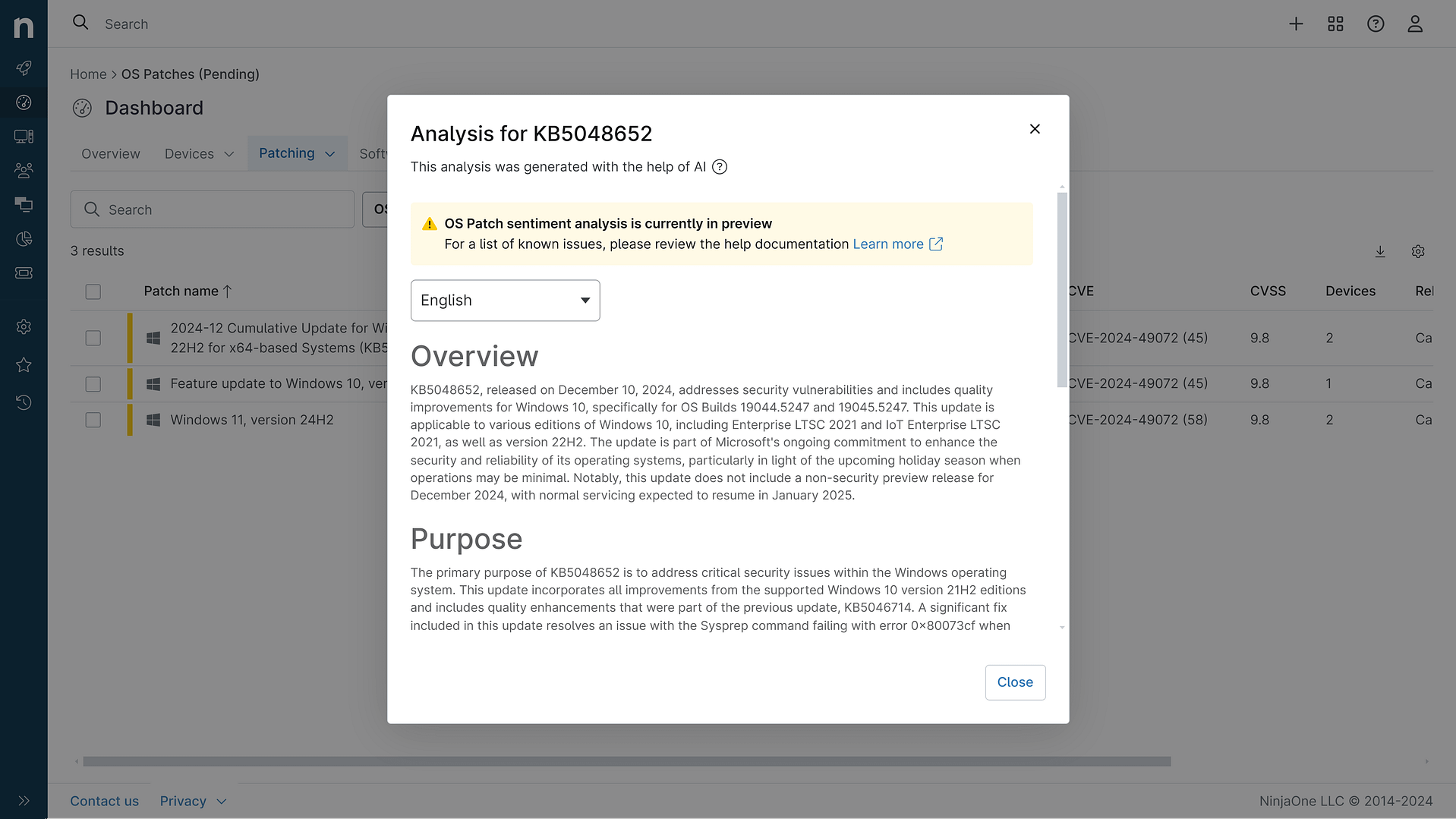KB5060531: Overview with user sentiment and feedback
Last Updated July 31, 2025
Probability of successful installation and continued operation of the machine
Overview
KB5060531 is a security update released on June 10, 2025, for Windows 10 version 1809, Windows Server 2019, Windows 10 IoT Enterprise LTSC 2019, and Windows 10 IoT Core LTSC. This update brings OS Build 17763.7434 and includes both security fixes and quality improvements to address various issues. The update is part of Microsoft's regular patch cycle and combines the latest servicing stack update (SSU) with the cumulative update (LCU) to improve the reliability of the update process. It addresses specific issues with GDI/GDI+ rendering and Windows Hello authentication while also incorporating security patches detailed in the June 2025 Security Updates.As with many security updates, KB5060531 has some known issues that administrators should be aware of before deployment, particularly a problem with the DHCP Server service that might intermittently stop responding after installation, affecting IP renewal for clients. Microsoft has acknowledged this issue and plans to release a fix in subsequent updates.
General Purpose
The primary purpose of KB5060531 is to address security vulnerabilities and provide quality improvements for Windows 10 version 1809 and Windows Server 2019 systems. The update fixes a rendering issue in GDI and GDI+ where some characters were displayed wider than intended, causing paragraph text to break incorrectly. It also resolves an authentication problem with Windows Hello for Business that prevented users from signing in with self-signed certificates when using the Key Trust model.This update incorporates the latest servicing stack update (KB5058525 - 17763.7313), which improves the reliability of the Windows update process itself. The servicing stack is the component responsible for installing Windows updates, and these improvements help mitigate potential issues during future update installations. Microsoft has combined this SSU with the latest cumulative update to streamline the patching process.Additionally, the update includes various security fixes detailed in Microsoft's Security Update Guide for June 2025, though specific vulnerability details are not extensively documented in the release notes. For systems approaching end of support (Windows 10 reaches end of support in October 2025), these security updates are particularly important for maintaining system security during the remaining support period.
General Sentiment
The general sentiment toward KB5060531 is cautious due to reported issues with DHCP services. While the update provides important security fixes and quality improvements that are necessary for maintaining system security, the DHCP server issue is significant enough to warrant careful consideration before deployment in production environments, especially for servers providing DHCP services.Windows Latest, a reputable source for Windows update information, reports that multiple server administrators have experienced problems with DHCP services immediately after installing this update. The issue appears to cause DHCP server connections to fail within 20-50 seconds of booting the server, affecting IP address assignments and renewals for clients across networks. This can be particularly disruptive in organizational environments such as offices, schools, and government facilities that rely on DHCP for network connectivity.Some users have reported that removing the update resolves the DHCP issues, but this leaves systems vulnerable to the security exploits that the update addresses. There are also reports of the update potentially blocking applications and services from accessing Active Directory, as well as JDBC connectivity issues with SQL Server 2022, particularly affecting applications like Crystal Reports. These issues suggest that thorough testing in non-production environments is advisable before widespread deployment.
Known Issues
- The DHCP Server service might intermittently stop responding after installing this security update, affecting IP renewal for clients JDBC access to SQL Server 2022 may be blocked after installing the update, particularly affecting applications like Crystal Reports with SSL/TLS encryption Some applications and services may experience issues accessing Active Directory after the update is installed The update may cause TLS handshake failures due to changes in cipher suites, certificate validation, or TLS protocol support Users have reported that Crystal Reports via JDBC connections fail with the error: "The driver could not establish a secure connection to SQL Server by using Secure Sockets Layer (SSL) encryption"
Disclaimer: We take measures to ensure that AI-generated content is of the highest possible quality, but we cannot guarantee its accuracy and recommend that users do their own independent research. Generated on 2025-07-31 09:13 PM
